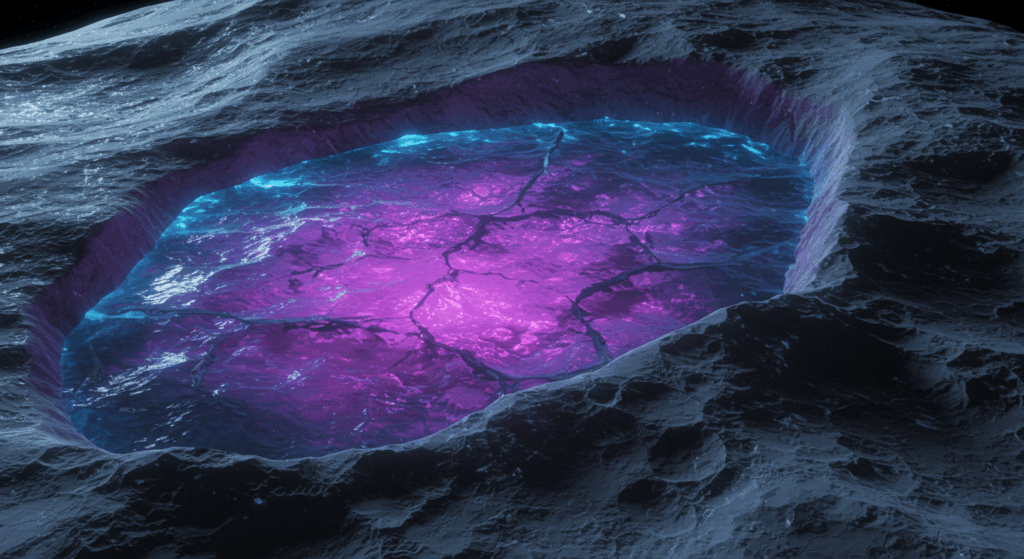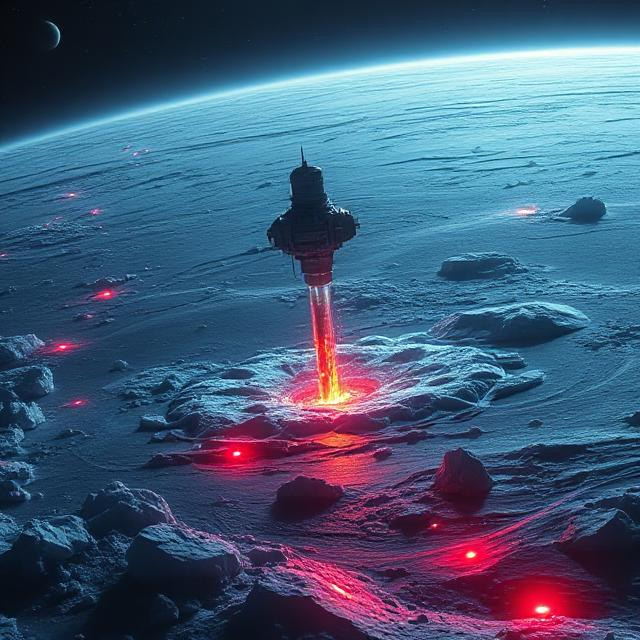Is humanity on the verge of discovering alien life? NASA’s Europa Clipper 2025 mission, launched in October 2024, has sparked global excitement with early test data suggesting life in Europa’s subsurface ocean. This $5 billion spacecraft, now en route to Jupiter’s icy moon, detected chemical signatures during 2025 calibrations that could hint at microbial life. At NovexaHub’s Bilim category, we’re unpacking this cosmic mystery: what did Europa Clipper 2025 find, and could it redefine our place in the universe? Spoilers ahead—join the buzz on X with #EuropaLife2025
Europa Clipper 2025’s Potential Discovery

Chemical Signatures Found
The Europa Clipper 2025 mission, a collaboration between NASA and ESA, is probing Europa’s massive saltwater ocean, hidden beneath a 15-25 km ice shell. In March 2025, during a Mars flyby, the spacecraft’s instruments detected organic compounds and energy signatures in test data, resembling Earth’s deep-sea hydrothermal vents. Lead scientist Dr. Emily Chen said, “These are tantalizing clues of possible microbial life.” On X, users erupted, one posting, “#EuropaLife2025—aliens next door?!” However, the signals could be non-biological, so scientists await plume samples from flybys starting in 2030.
A Prime Target for Life
Europa’s ocean, with more water than Earth’s, is a hotspot for astrobiologists. Heated by Jupiter’s tidal forces, its hydrothermal vents could mirror Earth’s life-rich deep-sea ecosystems. If Europa Clipper 2025 confirms biosignatures like amino acids, it could prove a second origin of life, suggesting life is common in the cosmos. Skeptics on X warn of false positives, but the mission’s advanced instruments, including radars and spectrometers, are built to hunt for truth.
Why Europa Clipper 2025 Matters

Finding life on Europa would be monumental. It could spark a new era of exploration, with NASA planning a lander to drill the ice. Beyond science, it raises big questions: would alien life unite or divide us? On X, one user wrote, “Europa Clipper 2025 proves we’re not alone!” while another feared, “What if it’s dangerous?” The mission, now adjusting its path after a 2025 Mars flyby, will deliver more data by 2030. For now, it’s a thrilling wait. Explore more space mysteries like Solar Storm 2025 at NovexaHub.
Join the Cosmic Debate
Do you believe Europa Clipper 2025 has found alien life? Share your thoughts on X with #EuropaLife2025. Stay tuned to NovexaHub’s Sience category for updates on this mind-blowing saga. The stars are calling—what’s your take?
What’s Next for Humanity—and Europa?
If life is confirmed on Europa, the implications are staggering. Scientists would push for a follow-up mission, perhaps a lander to drill through the ice and directly sample the ocean—a project already in early planning at NASA. But there’s a deeper question: what does this mean for us? Finding alien life could unite humanity in a shared quest for knowledge, or it could spark fear and division. On X, opinions are split: one user wrote, “This is the best news of 2025—proof we’re not alone!” while another countered, “What if they’re dangerous? We’re not ready!” The debate is heating up, and it’s only the beginning.

For now, the Europa Clipper continues its mission, scanning the moon’s surface and plumes for more clues. Scientists are cautiously optimistic, but they’re urging patience—confirmation could take months, or even years. Want to stay in the loop? Follow the latest updates on X with #EuropaLife2025, and share your thoughts: do you think we’ve found alien life, or is this just the start of a longer journey? Head to NovexaHub’s bilim category for more mind-blowing space stories that’ll keep you staring at the stars.

